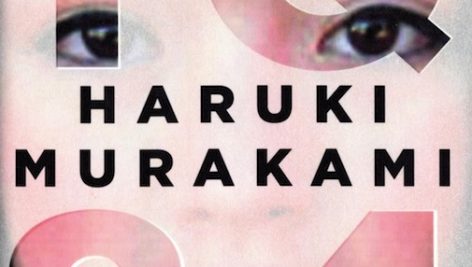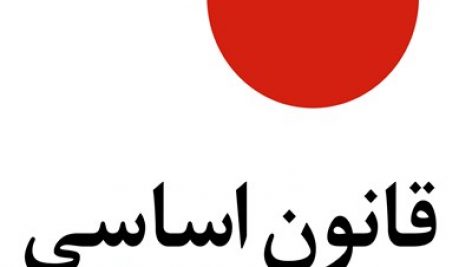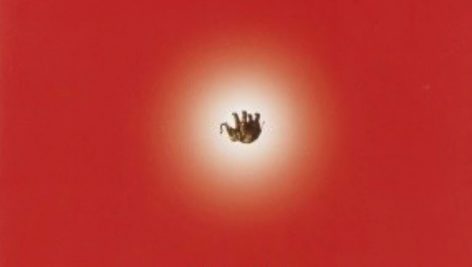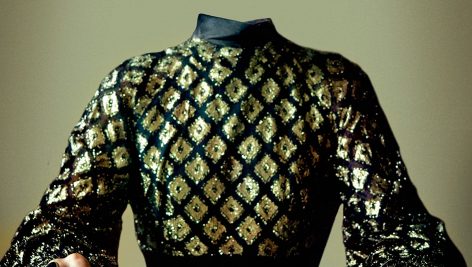کتاب ۱Q84 یکی از آثار پرفروش هاروکی موراکامی است که در سالهای ۲۰۰۹ و ۲۰۱۰ در عرض یک ماه بیش از یک میلیون جلد از آن به فروش رفت. این رمان سفری متافیزیکی است؛ برای کشف هویت، قدرت و حقیقت از پشت لنزهای گذشتهای که تغییر داده شده است.
۱Q84
معرفی و دانلود نسخه انگلیسی کتاب
نویسنده:
هاروکی موراکامی
Haruki Murakami
درباره کتاب ۱Q84 نوشته هاروکی موراکامی:
کتاب ۱Q84 یکی از آثار پرفروش هاروکی موراکامی است که در سالهای ۲۰۰۹ و ۲۰۱۰ در عرض یک ماه بیش از یک میلیون جلد از آن به فروش رفت. این رمان سفری متافیزیکی است؛ برای کشف هویت، قدرت و حقیقت از پشت لنزهای گذشتهای که تغییر داده شده است.
کتاب حاضر جلد اول از مجموعۀ سه جلدی رمان ۱Q84، داستان دختری است که قصد انتقام دارد؛ از همه مردانی که زنان خود و دیگران را مورد آزار و اذیت قرار میدهند. این دختر با کمک بیوهزنی که دخترش مورد آزار و اذیت قرار گرفته، درصدد قتل است!
دختر نوجوانی که به طرز نگران کنندهای ساکت است، دنیای ادبیاتِ رمز آمیزِ ژاپن را شیفتهی اولین نوشتهاش میکند. در واقع دخترک در دوره ابتدایی با پسری همکلاس بوده که از همان دوره کودکی عشقی نسبت به او داشته و در نهایت با تلاشهای بسیار زیاد این دختر و پسر دوباره یکدیگر را مییابند و … در کنار این داستان، هاروکی موراکامی (Haruki Murakami) به بررسی نهادها و سازمانهای مخفی که در جامعه ژاپن وجود دارند و با دولت مبارزه میکنند میپردازد.
۱Q84، رمان پیچیدهای است که به صورت سورئال روایت شده، در این رمان حوادثی در گذشته و حال از زبان شخصیتهایش بیان میشود. موضوع اصلی این رمان جنایت، تاریخ، مذهب، وابستگیهای خانوادگی و عشق است. اگر کسی بخواهد از فرهنگ جامعه معاصر ژاپن، آگاه شود، خواندن این کتاب برایش الزامی است.
رمان با آئومامه آغاز میشود. او در ابتدای رمان تاکسی گرفته و هنگامی که تاکسی در ترافیک میماند از یک راه خروجی اضطراری، برای یک ملاقات مهم استفاده میکند، سپس به یک هتل میرود و خود را کارمند هتل جا میزند و بدون گذاشتن ردپایی، یکی از مهمانان هتل را به قتل میرساند، طوری که کارآگاهان تصور میکنند که مقتول به مرگ طبیعی مرده است.
مردهایی را که آئومامه گهگاه با درفشی مخصوص به قتل میرساند، دست به خشونت خانگی میزنند و شما درمییابد که او به یک معنا مأمور اجرای عدالت الهی است. این خشونت خانگی در سراسر رمان بر شخصیتهای مرد و زن سایه میافکند و یک خط اساسی انحطاط و شرارت در رمان است. عشق حقیقی، که هم آئومامه و هم رمان به آن عقیده دارد، یا دست کم در مورد او و تنگو به ما یادآوری میکند، در برابر این انحطاط قرار دارد.
آنچه در ۱Q84 مجذوبکننده است، دو سویگی آن دربارهی “منطق واقعیت” و تمایل آن به فرو بردن خواننده در “قدرت عظیمتر” بیمنطقی غیر واقعی است که مزیت شور انقلابی و اصلاحطلبی را در خود دارد. ناواقعگرایی آنچه که داریم، یا روزنامهها میگویند داریم، همچون چیزهایی ناخوشایند، بیزار کننده و بیدوام طرد میکند و بدیل خود را عَرضه میدارد. در درون خردهفرهنگهایی که ایجاد میکند، به همهی پرسشها پاسخ میدهد. خیالبافیها به عمل گذاشته میشود. زیبایی چون مقولهای زیر و زبر میشود. اشیای روزمره خواص جادویی به خود میگیرد و مانند بت به خدمت گرفته میشود.
موراکامی به خوبی میداند که خود داستان را میتوان همچون دنیای آینه به خدمت گرفت. میتواند هم ناواقعگرایی را برانگیزد و به یاریش بشتابد و هم انکارش کند! اجزای سازنده این رمان جدید نیستند؛ آنها مفصل و دقیقند. توصیفات که شاید به نظرتان بیاهمیت بیاید از موسیقی، ادبیات تا آمادهسازی غذا، رشتههای روایی خیالی را به خوبی به هم متصل میکنند. او به گونهای به توصیف دنیاهای موازی، زنان قاتل و ارواح میپردازد که انگار همه آنها واقعیاند!
معرفی کتاب های جدید در پیج اینستاگرام بیبلیوفایل
در بخشهایی از کتاب ۱Q84 نوشته هاروکی موراکامی میخوانیم:
اولین خاطرهی تنگو از زمانی بود که یک سال و نیم داشت. مادرش را به حال نامناسب دیده بود… . بچهی توی تخت نوزاد در آن نزدیکی احتمالاً خودش بود. بهعنوان سومشخص ناظر این صحنه بود. شاید آن بچه برادر دوقلویش بوده. نه، امکان ندارد. همان تنگوی یک سال و نیمه بود. به طور شهودی میدانست. بچه خواب بود، چشمهایش بسته بود، نفسهای کوتاهش عمیق و منظم بود. این صحنهی دهثانیهیی زنده، اولین خاطرهاش در زندگی، از دیوار خودآگاه او صعود میکرد. نه چیزی پیش از آن بود، نه پس از آن. تک و تنها قد برافراشته بود، مثل منار کلیسای شهری سیلزده که از آب گلآلود بیرون بزند.
تنگو از این و آن میپرسید که اولین خاطره را از چه سنی به یاد دارند. برای بیشترشان بین پنج و ششسالگی بود. دیگر کمِ کمش سهسالگی بود. بچه باید دستکم به سهسالگی برسد تا صحنهی دور و برش را با درجهای از عقلانیت بسنجد. پیش از این مرحله همه چیز به صورت غیرقابل درکی آشفته است. جهان مثل شیربرنج وارفته است، نه چارچوبی دارد و نه دستاویزی. صحنهها از پیش دریچهی چشم ما میگذرد، بیآنکه نشانی بر مغز بگذارد.
پیداست برای بچهای یک سال و نیمه درک صحنهی بالا مشکل است. تا اینجا برو برگرد ندارد. پس اگر این خاطرهی تنگو اصالت داشت، این صحنه لابد به صورت تصویر خالص فارغ از داوری در شبکیهی او ثبت شده همانطور که دوربین اشیا را خودبهخود به صورت آمیزهی سایه روشن روی فیلم ضبط میکند. به مرور زمان که ضمیرش به پختگی رسید، این تصویر ثابت موجود در ناخودآگاه ذرهذره تحلیل شد و معنای لازم را به خود گرفت. اما آیا چنین چیزی ممکن است؟ آیا مغز بچه قابلیت حفظ تصاویر را به این نحو دارد؟
یا شاید این فقط خاطرهی اشتباهی تنگو باشد؟ آیا این خاطره به هر دلیل و قصدی فقط زاییدهی تخیلش بود؟ تنگو خیلی به امکان ساختگی بودن این خاطره فکر کرده و به نتیجه رسیده بود که احتمال ندارد. زندهتر و قویتر از آن بود که ساختگی باشد. نور، بوها و ضربان قلبش بینهایت واقعی حس میشد، نه قلابی. بهعلاوه اگر فرض را بر واقعی بودن این صحنه میگذاشت، بسیاری چیزها چه از لحاظ منطقی و چه احساسی قابل توضیح بود.
تنگو دستنویس را از کیفش درآورد، روی میز گذاشت و دست گذاشت روی اوراق تا بر وجودش تأکید کند.
«همانطور که تلفنی خلاصه گفتم، بهترین خصوصیت شفیره هوا این است که تقلید از کسی نیست. بههیچوجه حس نویسندگان تازهکار در آن موج نمیزند که داد بزند ‘میخواهم فلانی و بهمانی باشم’ البته سبک خشن است و نوشته خام. حتی یک گاف هم داده: ‘پیله’را به جای ‘شفیره’ گرفته. اگر دلت بخواهد، میشود همهاش را به هم ریخت و از نو ساخت؛ اما خود داستان خیلی قوی است. آدم را جلب میکند. پیرنگ داستان وهمآلود است، اما توصیف جزئیات به طرزی باورنکردنی حقیقی است. توازن این دو جنبه عالیست. نمیدانم کلماتی مثل ‘اصالت’ یا ‘ناگزیری’ به آن میخورد، یا نه؛ و گمانم اگر کسی اصرار بورزد که در آن سطح نیست، با او موافقت کنم؛ اما در نهایت، پس از خواندن تمام داستان، با همه اشکالاتش، بر آدم تأثیر واقعی میگذارد به طرزی عجیب و وصفناپذیر احساسی کمی آشفتهکننده به خواننده میدهد.»
کوماتسو چشم در چشم تنگو دوخت و ساکت ماند. منتظر باقی حرفها بود.
تنگو ادامه داد: «خوشم نمیآید ببینم اینجور نوشتهها چون سبک ناشیانهای دارند از مسابقهها محروم میشوند. ظرف سالها خروارها کتاب خواندهام، یا بهتر بگویم تورق کردهام. البته چندتایی نسبتاً خوب نوشته شده بودند، اما بیشترشان افتضاح بودند. و از میان این دستنوشتهها این شفیره هواست که ذرات وجودم را تکانده. تنها داستانی که دلم میخواهد دوباره بخوانمش.»
کوماتسو گفت: «خب، خب!» بعد انگار که این حرفها را ملالآور بداند، رشتهای دود از لبهای لوچهاش بیرون فرستاد. اما تنگو بیش از آن کوماتسو را میشناخت که گول این بازی را بخورد. او مردی بود که قیافهای نامربوط ــــ یا دقیقاً مخالف ــــ آنچه احساس واقعیش بود به خود میگرفت. پس تنگو صبر کرد که به حرف بیاید.
کوماتسو پس از مکث کوتاهی گفت: «من هم خواندمش. درست بعد از آنکه به من زنگ زدی. طرز نوشتنش افتضاح است. از لحاظ دستوری غلط است و بعضی جاها اصلاً معلوم نیست چه میخواهد بگوید. نویسنده باید پیش از نوشتن رمان برود مدرسه و یاد بگیرد چطور باید جملهٔ درست درمان نوشت.»
«ولی تا تهش خواندی، نه؟»
کوماتسو لبخند زد. از آنجور لبخندها که تو قوطی هیچ عطاری پیدا نمیشود. «حق با تو است. من هم در کمال شگفتی آن را تا ته خواندم. هیچوقت کار این نویسندههای جویای نام را از سر تا ته نمیخوانم؛ اما بعضی قسمتهای این یکی را چند بار خواندم. بگذار بگویم سیارات در اقتران کامل بودند. تا اینجایش قبول.»
«این یعنی که حرفی دارد، اینطور نیست؟»
کوماتسو سیگارش را در زیرسیگاری گذاشت، با انگشت میانی دست راست کنج بینیاش را خاراند؛ اما به سؤال تنگو جواب نداد.
تنگو گفت: «دختره فقط هفده سال دارد، بچهمدرسهیی است. هنوز در خواندن و نوشتن انضباط ندارد، همین. در عمل برای این داستان محال است که جایزه نوقلمها را ببرد، میدانم، اما همینقدر که در لیست نیمهنهایی قرار بگیرد برایش خوب است. مطمئنم این کار از تو برمیآید. در این صورت میتواند سال بعد برنده شود.»
کوماتسو یکی از آن پاسخهای مبهم خود را داد و خمیازه کشید. «هو م … م …» از لیوان آب جرعهای نوشید. «از این حرفت ممنون، تنگو. تصورش را بکن که بگذارمش توی لیست نیمهنهایی. آنوقت اعضای هیئت داوران غش میکنند، یا به احتمال قوی به خودشان میشاشند؛
توضیحات کتاب ۱Q84 نوشته ی Haruki Murakami :
The year is 1984 and the city is Tokyo.
A young woman named Aomame follows a taxi driver’s enigmatic suggestion and begins to notice puzzling discrepancies in the world around her. She has entered, she realizes, a parallel existence, which she calls 1Q84 —“Q is for ‘question mark.’ A world that bears a question.” Meanwhile, an aspiring writer named Tengo takes on a suspect ghostwriting project. He becomes so wrapped up with the work and its unusual author that, soon, his previously placid life begins to come unraveled.
As Aomame’s and Tengo’s narratives converge over the course of this single year, we learn of the profound and tangled connections that bind them ever closer: a beautiful, dyslexic teenage girl with a unique vision; a mysterious religious cult that instigated a shoot-out with the metropolitan police; a reclusive, wealthy dowager who runs a shelter for abused women; a hideously ugly private investigator; a mild-mannered yet ruthlessly efficient bodyguard; and a peculiarly insistent television-fee collector.
A love story, a mystery, a fantasy, a novel of self-discovery, a dystopia to rival George Orwell’s — ۱Q84 is Haruki Murakami’s most ambitious undertaking yet: an instant best seller in his native Japan, and a tremendous feat of imagination from one of our most revered contemporary writers.
قسمت هایی از متن کتاب ۱Q84 :
۱Q84 Quotes
“If you can love someone with your whole heart, even one person, then there’s salvation in life. Even if you can’t get together with that person.”
― ۱Q84
“I can bear any pain as long as it has meaning.”
― ۱Q84
“That’s what the world is , after all: an endless battle of contrasting memories.”
― ۱Q84
“I’m a very ordinary human being; I just happen to like reading books.”
― ۱Q84
“Even if we could turn back, we’d probably never end up where we started.”
― ۱Q84
“It is not that the meaning cannot be explained. But there are certain meanings that are lost forever the moment they are explained in words.”
― ۱Q84
“I’m tired of living unable to love anyone. I don’t have a single friend – not one. And, worst of all, I can’t even love myself. Why is that? Why can’t I love myself? It’s because I can’t love anyone else. A person learns how to love himself through the simple acts of loving and being loved by someone else. Do you understand what I am saying? A person who is incapable of loving another cannot properly love himself.”
― ۱Q84
“You can keep as quiet as you like, but one of these days somebody is going to find you.”
― ۱Q84
“If you can’t understand it without an explanation, you can’t understand it with an explanation.”
― ۱Q84
“Find me now. Before someone else does.”
― ۱Q84
“Life is not like water. Things in life don’t necessarily flow over the shortest possible route.”
― ۱Q84
“In a sense, I’m the one who ruined me: I did it myself.”
― ۱Q84
“I am nothing. I’m like someone who’s been thrown into the ocean at night, floating all alone. I reach out, but no one is there. I call out, but no one answers. I have no connection to anything.”
― ۱Q84
“What I want is for the two of us to meet somewhere by chance one day, like, passing on the street, or getting on the same bus.”
― ۱Q84
“As I see it, you are living with something that you keep hidden deep inside. Something heavy. I felt it from the first time I met you. You have a strong gaze, as if you have made up your mind about something. To tell you the truth, I myself carry such things around inside. Heavy things. That is how I can see it in you.”
― ۱Q84
“Loneliness becomes an acid that eats away at you.”
― ۱Q84
“I’ve been lonely for so long. And I’ve been hurt so deeply. If only I could have met you again a long time ago, then I wouldn’t have had to take all these detours to get here.’
Tengo shook his head. ‘I don’t think so. This way is just fine. This is exactly the right time. For both of us. […] We needed that much time…. to understand how lonely we really were.”
― ۱Q84
“But there are certain meanings that are lost forever the moment they are explained in words.”
― ۱Q84
“A person learns how to love himself through the simple acts of loving and being loved by someone else.”
― ۱Q84
“As if to build a fence around the fatal emptiness inside her, she had to create a sunny person that she became. But if you peeled away the ornamental egos that she had built, there was only an abbys of nothingness and the intense thirst that came with it. Though she tried to forget it, the nothingness would visit her periodically – on a lonely rainy afternoon, or at dawn when she woke up from a nightmare. What she needed at such times was to be held by someone, anyone.”
― ۱Q84
“I’m a coward when it comes to matters of the heart. That is my fatal flaw.”
― ۱Q84
“Wasn’t it better if they kept this desire to see each other hidden within them, and never actually got together? That way, there would always be hope in their hearts. That hope would be a small, yet vital flame that warmed them to their core– a tiny flame to cup one’s hands around and protect from the wind, a flame that the violent winds of reality might easily extinguish.”
― ۱Q84
“Knowledge and ability were tools, not things to show off.”
― ۱Q84
“Life is so uncertain: you never know what could happen. One way to deal with that is to keep your pajamas washed.”
― ۱Q84
“Everyone, deep in their hearts, is waiting for the end of the world to come.”
― ۱Q84
“It’s just that you’re about to do something out of the ordinary. And after you do something like that, the everyday look of things might seem to change a little. Things may look different to you than they did before. But don’t let appearances fool you. There’s always only one reality.”
― ۱Q84
“Please remember: things are not what they seem.”
― ۱Q84
“What we call the present is given shape by an accumulation of the past.”
― ۱Q84
“The moon had been observing the earth close-up longer than anyone. It must have witnessed all of the phenomena occurring – and all of the acts carried out – on this earth. But the moon remained silent; it told no stories. All it did was embrace the heavy past with a cool, measured detachment. On the moon there was neither air nor wind. Its vacuum was perfect for preserving memories unscathed. No one could unlock the heart of the moon. Aomame raised her glass to the moon and asked, “Have you gone to bed with someone in your arms lately?”
The moon did not answer.
“Do you have any friends?” she asked.
The moon did not answer.
“Don’t you get tired of always playing it cool?”
The moon did not answer.”
― ۱Q84
“They sat on a park bench, held hands, and told each other their stories hour after hour. They were not lonely anymore. They had found and been found by their 100% perfect other. What a wonderful thing it is to find and be found by your 100% perfect other. It’s a miracle, a cosmic miracle.”
― ۱Q84
“Whenever she felt like crying, she would instead become angry—at someone else or at herself—which meant that it was rare for her to shed tears.”
― ۱Q84
“The body is not the only target of rape. Violence does not always take a visible form, and not all wounds gush blood.”
― ۱Q84
“Once you pass a certain age, life becomes nothing more than a process of continual loss. Things that are important to your life begin to slip out of your grasp, one after another, like a come losing teeth. And the only things that come to take their place are worthless imitations. Your physical strength, your hopes, your dreams, your ideals, your convictions, all meaning, or then again, the people you love: one by one, they fade away. Some announce their departure before they leave, while others just disappear all of a sudden without warning one day. And once you lose them you can never get them back. Your search for replacements never goes well. It’s all very painful – as painful as actually being cut with a knife.”
― ۱Q84
“A person’s last moments are an important thing. You can’t choose how you’re born but you can choose how you die.”
― ۱Q84
“Once you let yourself grow close to someone, cutting the ties could be painful.”
― ۱Q84
“Hundreds of butterflies flitted in and out of sight like short-lived punctuation marks in a stream of consciousness without beginning or end.”
― ۱Q84
“The thing I’m most afraid of is me. Of not knowing what I’m going to do. Of not knowing what I’m doing right now”
― ۱Q84
“The things she most wanted to tell him would lose their meaning the moment she put them into words.”
― ۱Q84
“Things can be seen better in the darkness,” he said, as if he had just seen into her mind. “But the longer you spend in the dark, the harder it becomes to return to the world aboveground where the light is”
― ۱Q84
“Time flows in strange ways on Sundays, and sights become mysteriously distorted.”
― ۱Q84
“According to Chekhov,” Tamaru said, rising from his chair, “once a gun appears in a story, it has to be fired.”
“Meaning what?”
“Meaning, don’t bring unnecessary props into a story. If a pistol appears, it has to be fired at some point. Chekhov liked to write stories that did away with all useless ornamentation.”
― ۱Q84
“Our memory is made up of our individual memories and our collective memories. The two are intimately linked. And history is our collective memory. If our collective memory is taken from us – is rewritten – we lose the ability to sustain our true selves.”
― ۱Q84
“In this world, there is no absolute good, no absolute evil,” the man said. “Good and evil are not fixed, stable entities, but are continually trading places. A good may be transformed into an evil in the next second. And vice versa. Such was the way of the world that Dostoevsky depicted in The Brothers Karamazov. The most important thing is to maintain the balance between the constantly moving good and evil. If you lean too much in either direction, it becomes difficult to maintain actual morals. Indeed, balance itself is the good.”
― ۱Q84
“…most people in the world don’t really use their brains to think. And people who don’t think are the ones who don’t listen to others.”
― ۱Q84
“You said you’re going far away,” Tamaru said. “How far away are we talking about?”
“It’s a distance that can’t be measured.”
“Like the distance that separates one person’s heart from another’s.”
― ۱Q84
“Such wounds to the heart will probably never heal. But we cannot simply sit and stare at our wounds forever.”
― ۱Q84
“There was just one moon. That familiar, yellow, solitary moon. The same moon that silently floated over fields of pampas grass, the moon that rose–a gleaming, round saucer–over the calm surface of lakes, that tranquilly beamed down on the rooftops of fast-asleep houses. The same moon that brought the high tide to shore, that softly shone on the fur of animals and enveloped and protected travelers at night. The moon that, as a crescent, shaved slivers from the soul–or, as a new moon, silently bathed the earth in its own loneliness. THAT moon.”
― ۱Q84
“It’s the same with menus and men and just about anything else: we think we’re choosing things for ourselves, but in fact we may not be choosing anything. It could be that everthing’s being decided in advance and we pretend we’re making choices. Free will may be an illusion. I often think that.”
― ۱Q84
“Even if you managed to escape from one cage, weren’t you just in another, larger one?”
― ۱Q84
“I’m all alone, but I’m not lonely.”
― ۱Q84
“I was in my house, alone in the living room, anxious about you, watching the flashes of lightning. And a flash of lightning lit up this truth for me, right in front of my eye. That night i lost you, I lost something inside me. Or perhaps several things. Something central to my existence, the very support for who I am as a person”
― ۱Q84
“There is nothing in this world that never takes a step outside a person’s heart.”
― ۱Q84
“Beyond the window, some kind of small, black thing shot across the sky. A bird, possibly. Or it might have been someone’s soul being blown to the far side of the world.”
― ۱Q84
“Where there is light, there must be shadow, where there is shadow there must be light. There is no shadow without light and no light without shadow…. We do not know if the so-called Little People are good or evil. This is, in a sense, something that surpasses our understanding and our definitions. We have lived with them since long, long ago– from a time before good and evil even existed, when people’s minds were still benighted.”
― ۱Q84
“This may be the most important proposition revealed by history: ‘At the time, no one knew what was coming.”
― ۱Q84
“Everybody feels safe belonging not to the excluded minority but to the excluding majority. You think, Oh, I’m glad that’s not me. It’s basically the same in all periods in all societies. If you belong to the majority, you can avoid thinking about lots of troubling things.”
― ۱Q84
“Don’t let appearances fool you. There’s always only one reality!”
― ۱Q84
“It’s like the Tibetan Wheel of the Passions. As the wheel turns, the values and feelings on the outer rim rise and fall, shining or sinking into darkness. But true love stays fastened to the axle and doesn’t move.”
― ۱Q84
“Either I’m funny or the world’s funny. I don’t know which. The bottle and lid don’t fit. It could be the bottle’s fault or the lid’s fault. In either case, there’s no denying that the fit is bad.”
― ۱Q84
“Where there is light, there must be shadow, and where there is shadow there must be light. There is no shadow without light and no light without shadow. Karl Jung said this about ‘the Shadow’ in one of his books: ‘It is as evil as we are positive… the more desperately we try to be good and wonderful and perfect, the more the Shadow develops a definite will to be black and evil and destructive… The fact is that if one tries beyond one’s capacity to be perfect, the shadow descends to hell and becomes the devil. For it is just as sinful from the standpoint of nature and of truth to be above oneself as to be below oneself.”
― ۱Q84
“I’ve had that kind of experience myself: I’m looking at a map and I see someplace that makes me think, ‘I absolutely have to go to this place, no matter what’. And most of the time, for some reason, the place is far away and hard to get to. I feel this overwhelming desire to know what kind of scenery the place has, or what people are doing there. It’s like measles – you can’t show other people exactly where the passion comes from. It’s curiosity in the purest sense. An inexplicable inspiration.”
― ۱Q84
“Nobody’s easier to fool, than the person who is convinced that he is right.”
― ۱Q84
“Violence does not always take visible form, and not all wounds gush blood.”
― ۱Q84
“He appeared before me and departed. We were not able to speak to or touch each other. But in that short interval, he transformed many things inside me. He literally stirred my mind and body the way a spoon stirs a cup of cocoa, down to the depths of my internal organs and my womb.”
― ۱Q84
“The two of them on top of the freezing slide, wordlessly holding hands. Once again they were a ten-year-old boy and girl. A lonely boy, and a lonely girl. A classroom, just after school let out, at the beginning of winter. They had neither the power nor the knowledge to know what they should offer to each other, what they should be seeking. They had never, ever, been truly loved, or truly loved someone else. They had never held anyone, never been held. They had not idea, either, where this action would take them. What they entered then was a doorless room. They couldn’t get out, nor could anyone else come in. The two of them didn’t know it at the time, but this was the only truly complete place in the entire world. Totally isolated, yet the one place not tainted with loneliness.”
― ۱Q84
“Wherever there’s hope there’s a trial.”
― ۱Q84
“I move, therefore I am.”
― ۱Q84
“Don’t you see? You and he might never cross paths again. Of course, a chance meeting could occur, and I hope it happens. I really do, for your sake. But realistically speaking, you have to see there’s a huge possibility you’ll never be able to meet him again. And even if you do meet, he might already be married to somebody else. He might have two kids. Isn’t that so? And in that case, you may have to live the rest of your life alone, never being joined with the one person you love in all the world. Don’t you find that scary?”
― ۱Q84
“It’s not me but the world that’s deranged.”
― ۱Q84
“He does not exist here, with me, but flesh that does not exist will never die, and promises unmade are never broken.”
― ۱Q84
“People need routines. It’s like a theme in music. But it also restricts your thoughts and actions and limits your freedom. It structures your priorities and in some cases distorts your logic.”
― ۱Q84
“Human beings are ultimately nothing but carriers-passageways- for genes. They ride us into the ground like racehorses from generation to generation. Genes don’t think about what constitutes good or evil. They don’t care whether we are happy or unhappy. We’re just means to an end for them. The only thing they think about is what is most efficient for them.”
― ۱Q84
“Shakespeare said it best,’ Tamaru said quietly as he gazed at that lumpish, misshapen head. ‘Something along these lines: if we die today, we do not have to die tomorrow, so let us look to the best in each other”
― ۱Q84
“Where I’m living is not a storybook world. It’s the real world, full of gaps and inconsistencies and anticlimaxes.”
― ۱Q84
“You throw a stone into a deep pond. Splash. The sound is big, and it reverberates throughout the surrounding area. What comes out of the pond after that? All we can do is stare at the pond, holding our breath.”
― ۱Q84
“There’s nothing wrong with not looking like something. It just means you don’t fit the stereotype yet.”
― ۱Q84
“If there’s any guy crazy enough to attack me, I’m going to show him the end of the world — close up. I’m going to let him see the kingdom come with his own eyes. I’m going to send him straight to the southern hemisphere and let the ashes of death rain all over him and the kangaroos and the wallabies.”
― ۱Q84
“Listening to the music while stretching her body close to its limit, she was able to attain a mysterious calm. She was simultaneously the torturer and the tortured, the forcer and the forced. This sense of inner-directed self-sufficiency was what she wanted most of all. It gave her deep solace.”
― ۱Q84
“Math is like water. It has a lot of difficult theories, of course, but its basic logic is very simple. Just as water flows from high to low over the shortest possible distance, figures can only flow in one direction. You just have to keep your eye on them for the route to reveal itself. That’s all it takes. You don’t have to do a thing. Just concentrate your attention and keep your eyes open, and the figures make everything clear to you. In this whole, wide world, the only thing that treats me so kindly is math.”
― ۱Q84
“But still,” Ayumi said, “it seems to me that this world has a serious shortage of both logic and kindness.”
“You may be right,” Aomame said, “But it’s too late to trade it in for another one.”
― ۱Q84
“The young man knows that he is irretrievably lost. This is no town of cats, he finally realizes. It is the place where he is meant to be lost. It is another world, which has been prepared especially for him. And never again, for all eternity, will the train stop at this station to take him back to the world he came from.”
― ۱Q84
“She lived frugally, but her meals were the only things on which she deliberately spent her money. She never compromised on the quality of her groceries, and drank only good-quality wines.”
― ۱Q84
“But it has finally hit me: she is neither a concept nor a symbol nor a metaphor. She actually exists: she has warm flesh and a spirit that moves. I never should have lost sight of that warmth and that movement.”
― ۱Q84
“This is what it means to live on. When granted hope, a person uses it as fuel, as a guidepost to life. It is impossible to live without hope.”
― ۱Q84
“She curled up and pressed her cheek against his chest. Her ear was right above his heart. She was listening to his thoughts. “I need to know this,” Aomame said. “That we’re in the same world, seeing the same things.”
― ۱Q84
“No, I don’t want your money. The world moves less by money than by what you owe people and what they owe you. I don’t like to owe anybody anything, so I keep to myself as much on the lending side as I can.”
― ۱Q84
“I was confident that I was a special person. But time slowly chips away at life. People don’t just die when their time comes. They gradually die away, from the inside. And finally the day comes when you have to settle accounts. Nobody can escape it. People have to pay the price for what they’ve received. I have only just learned that truth.”
― ۱Q84
“Overhead, the two moons worked together to bathe the world in a strange light.”
― ۱Q84
“Constipation was one of the things she hated most in the world, on par with despicable men who commit domestic violence and narrow-minded religious fundamentalists.”
― ۱Q84
“How about Proust’s In Search of Lost Time?” Tamaru asked. “If you’ve never read it this would be a good opportunity to read the whole thing.”
“Have you read it?”
“No, I haven’t been in jail, or had to hide out for a long time. Someone once said unless you have those kinds of opportunities, you can’t read the whole of Proust.”
― ۱Q84
- لینک دانلود فایل بلافاصله بعد از پرداخت وجه به نمایش در خواهد آمد.
- همچنین لینک دانلود به ایمیل شما ارسال خواهد شد به همین دلیل ایمیل خود را به دقت وارد نمایید.
- ممکن است ایمیل ارسالی به پوشه اسپم یا Bulk ایمیل شما ارسال شده باشد.
- پسورد تمامی فایل ها www.bibliofile.ir است.
- در صورتی که به هر دلیلی موفق به دانلود فایل مورد نظر نشدید با ما تماس بگیرید.
- در صورتی که این فایل دارای حق کپی رایت و یا خلاف قانون می باشد ، لطفا به ما اطلاع رسانی کنید.
 بیبلیوفایل | بزرگترین مرکز فروش محصولات دانلودی
بیبلیوفایل | بزرگترین مرکز فروش محصولات دانلودی
















مری ( خریدار محصول )
من خریدمش. ولی متاسفانه فایل خالی بود
منصور زرگرانفروشنده
با سلام
فایل چک شد و مشکلی نداره
فایل ها زیپ شده و دارای پسورد هستند( پسورد در راهنمای خرید موجود است) . برای unzip کردن فایل نیاز به برنامه winrar دارید. برای خواندن کتاب نیز از برنامه icecream ebook reader برای ویندوز و برنامه های مختلف epub reader برای اندروید و آی او اس استفاده کنید.
برای اینکه احتمال می رود دسترسی به برنامه winrar ندارید ، فایل آنزیپ شده کتاب به ایمیلتان فرستاده شد.
مری ( خریدار محصول )
خیلی ممنونم از توضیحاتتون. بله مشکل برطرف شد. باید برنامه مناسب برای باز کردن و خواندن ebook نصب میکردم.